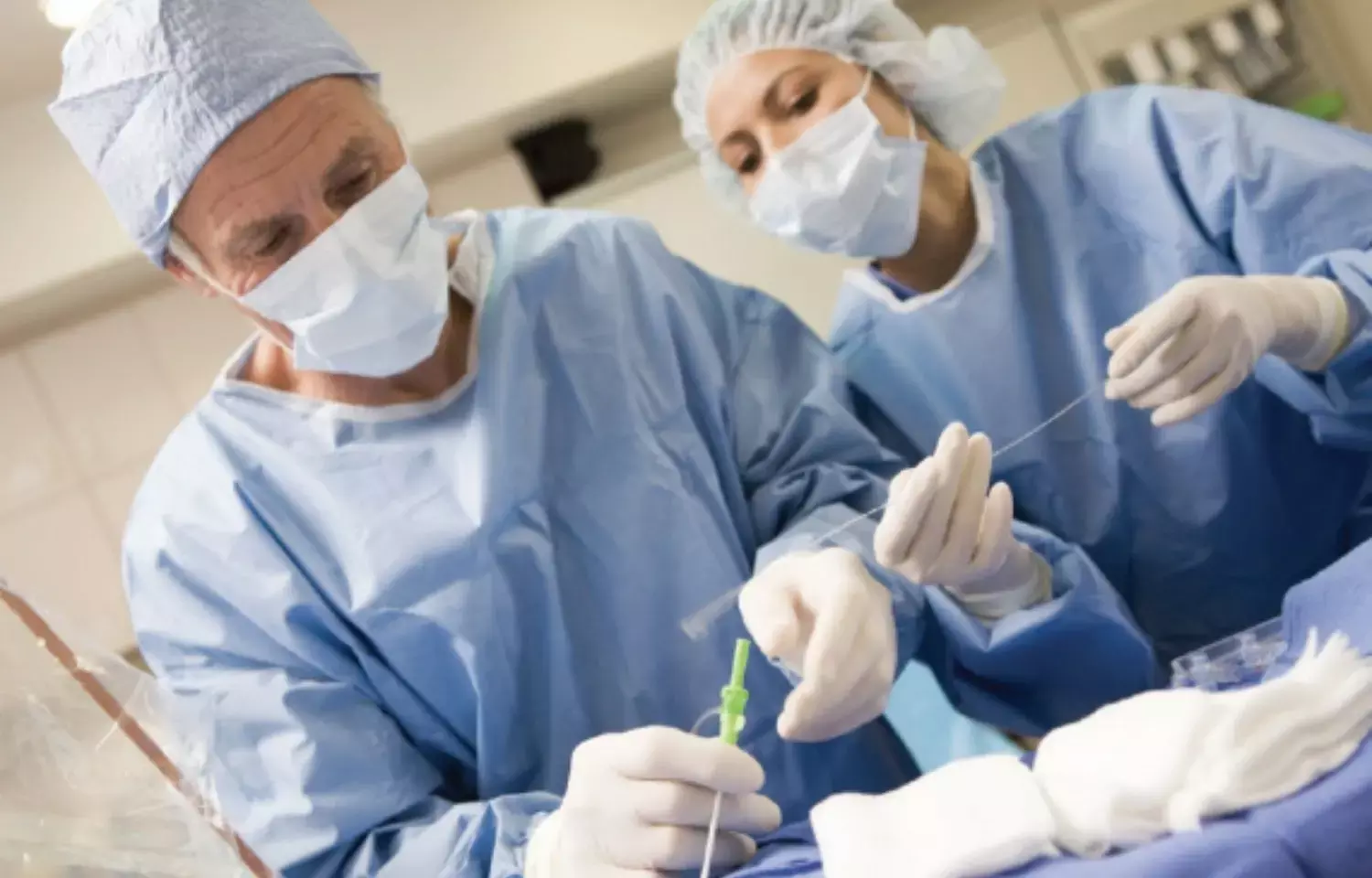- Home
- Medical news & Guidelines
- Anesthesiology
- Cardiology and CTVS
- Critical Care
- Dentistry
- Dermatology
- Diabetes and Endocrinology
- ENT
- Gastroenterology
- Medicine
- Nephrology
- Neurology
- Obstretics-Gynaecology
- Oncology
- Ophthalmology
- Orthopaedics
- Pediatrics-Neonatology
- Psychiatry
- Pulmonology
- Radiology
- Surgery
- Urology
- Laboratory Medicine
- Diet
- Nursing
- Paramedical
- Physiotherapy
- Health news
- Fact Check
- Bone Health Fact Check
- Brain Health Fact Check
- Cancer Related Fact Check
- Child Care Fact Check
- Dental and oral health fact check
- Diabetes and metabolic health fact check
- Diet and Nutrition Fact Check
- Eye and ENT Care Fact Check
- Fitness fact check
- Gut health fact check
- Heart health fact check
- Kidney health fact check
- Medical education fact check
- Men's health fact check
- Respiratory fact check
- Skin and hair care fact check
- Vaccine and Immunization fact check
- Women's health fact check
- AYUSH
- State News
- Andaman and Nicobar Islands
- Andhra Pradesh
- Arunachal Pradesh
- Assam
- Bihar
- Chandigarh
- Chattisgarh
- Dadra and Nagar Haveli
- Daman and Diu
- Delhi
- Goa
- Gujarat
- Haryana
- Himachal Pradesh
- Jammu & Kashmir
- Jharkhand
- Karnataka
- Kerala
- Ladakh
- Lakshadweep
- Madhya Pradesh
- Maharashtra
- Manipur
- Meghalaya
- Mizoram
- Nagaland
- Odisha
- Puducherry
- Punjab
- Rajasthan
- Sikkim
- Tamil Nadu
- Telangana
- Tripura
- Uttar Pradesh
- Uttrakhand
- West Bengal
- Medical Education
- Industry
Echocardiographers at higher radiation exposure compared to cardiologists, sonographers: JAMA

USA: During structural heart procedures, interventional echocardiographers are exposed to higher radiation doses compared to interventional cardiologists, whereas sonographers showed comparatively lower radiation doses, says a new study published in JAMA Network Open.
A higher radiation dose implies an underappreciated occupational risk faced by interventional echocardiographers. This has implications for the rapidly expanding field of interventional echocardiography.
An interventional echocardiographer is required to stand near the radiation source and the patient which is the primary source of scatter radiation in transesophageal echocardiography during percutaneous left atrial appendage closure (LAAO) and transcatheter edge-to-edge mitral valve repair (TEER).
Previous studies have demonstrated high radiation exposure for interventional cardiologists performing percutaneous coronary and structural heart interventions but there is a lack of similar data for interventional echocardiographers. To fill this knowledge gap, David A. McNamara, Frederik Meijer Heart & Vascular Institute, Spectrum Health, Grand Rapids, Michigan, and colleagues aimed to assess whether interventional echocardiographers are exposed to greater radiation doses than interventional cardiologists and sonographers during structural heart procedures in a single-center cross-sectional study.
For this purpose, the researchers collected radiation doses from interventional cardiologists, interventional echocardiographers, and sonographers during 30 sequential LAAO and 30 sequential TEER procedures from July 1, 2016, to January 31, 2018. Through data analysis done from January 1, 2020, to October 12, 2021, participants and study personnel were blinded to radiation doses.
Real-time radiation dosimeters were used to record measured personal dose equivalents per case.
Key findings of the study include:
- A total of 60 (30 TEER and 30 LAAO) procedures were performed in 60 patients (mean age, 79 years; 53.3% were males) with a high cardiovascular risk factor burden.
- The median radiation dose per case was higher for interventional echocardiographers (10.6 μSv; IQR, 4.2-22.4 μSv) than for interventional cardiologists (2.1 μSv; IQR, 0.2-8.3 μSv).
- During TEER, interventional echocardiographers received a median radiation dose of 10.5 μSv (IQR, 3.1-20.5 μSv), which was higher than the median radiation dose received by interventional cardiologists (0.9 μSv; IQR, 0.1-12.2 μSv).
- During LAAO procedures, the median radiation dose was 10.6 μSv (IQR, 5.8-24.1 μSv) among interventional echocardiographers and 3.5 (IQR, 1.3-6.3 μSv) among interventional cardiologists.
- Compared with interventional echocardiographers, sonographers exhibited low median radiation doses during both LAAO (0.2 μSv; IQR, 0.0-1.6 μSv) and TEER (0.0 μSv; IQR, 0.0-0.1 μSv).
"Our study showed that interventional echocardiographers have 3.0-fold greater median head-level radiation doses during LAAO and 11.7-fold greater during TEER than for interventional physicians," the authors wrote in their study.
"These comparatively increased radiation doses reveal a previously underrecognized occupational radiation exposure risk, which has important ramifications for the rapidly expanding field of interventional echocardiography," they conclude.
Reference:
McNamara DA, Chopra R, Decker JM, et al. Comparison of Radiation Exposure Among Interventional Echocardiographers, Interventional Cardiologists, and Sonographers During Percutaneous Structural Heart Interventions. JAMA Netw Open. 2022;5(7):e2220597. doi:10.1001/jamanetworkopen.2022.20597
Dr Kamal Kant Kohli-MBBS, DTCD- a chest specialist with more than 30 years of practice and a flair for writing clinical articles, Dr Kamal Kant Kohli joined Medical Dialogues as a Chief Editor of Medical News. Besides writing articles, as an editor, he proofreads and verifies all the medical content published on Medical Dialogues including those coming from journals, studies,medical conferences,guidelines etc. Email: drkohli@medicaldialogues.in. Contact no. 011-43720751


